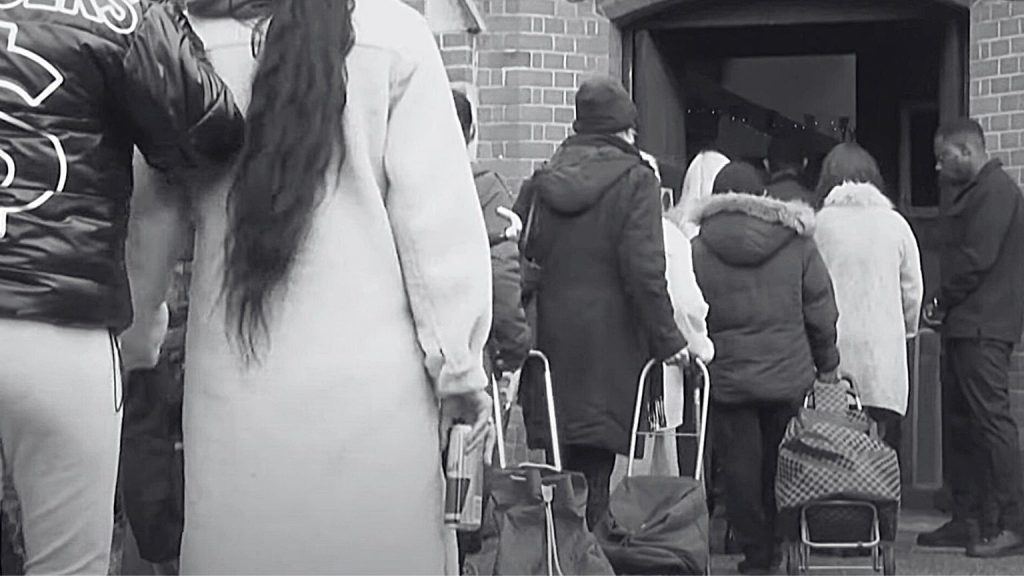by Ken Macon, Reclaim The Net:

Invasive.
Privacy campaigners are putting the pressure on London food banks to abandon facial recognition systems, flagging significant risks to users’ “privacy, dignity, and security.” Hackney Foodbank, which operates five distribution centers under the umbrella of the Trussell Trust network, is among those employing the Face Donate app.
TRUTH LIVES on at https://sgtreport.tv/
Here’s the deal: The app, Face Donate, enables users to receive shopping tokens in lieu of traditional food parcels. By doing so, it helps the food bank cope with the surging demand without the need for additional manpower to manage supplies. However, to avail the service, users are required to submit invasive facial scans. This doesn’t just facilitate the picking of food items from stores, but also paves the way for tracking purchases.
On one side: As reported by The Guardian, Big Brother Watch’s director, Silkie Carlo, has been vocal in calling for a halt to this practice. She contends that seeking sensitive biometric data in exchange for food is untenable. She alerted Hackney Foodbank that “as biometric data becomes increasingly valuable the repercussions of your users’ biometric data being lost or stolen could be catastrophic,” because, unlike passwords, biometric data cannot be reset after a data breach. “It is for this reason that the legal threshold for processing biometric data must meet the strict requirement of necessity rather than of convenience,” Carlo added.
The Counterargument: Both the food bank and the software provider dispute the assertion that biometric data is effectively being bartered for food. They insist that Face Donate is not in violation of privacy, dignity, or security. Alexandr Kulakov, the co-founder of Face Donate, stated that the aim is to offer assistance without judgment, based on purchase patterns. Pat Fitzsimons, Hackney Foodbank’s chief executive, reiterated, “We would never contemplate using a system that swaps, trades or exchanges any kind of facial or biometric data in return for food.” He further clarified that the food bank does not store any images of people; rather, it uses facial geometry data points like the distance between a user’s eyes.
The bigger picture: This comes at a time when there’s mounting apprehension over the rise of digital automation within the welfare system. Recently, it came to light that about 350 low-income workers were lodging complaints daily due to glitches in automated welfare top-ups, leading to financial and emotional distress. The Department of Work and Pensions is also leveraging AI to tackle benefit fraud through digital profiling of claimants. In the US, some lawmakers are calling for the end of facial biometric scanning in public housing.



